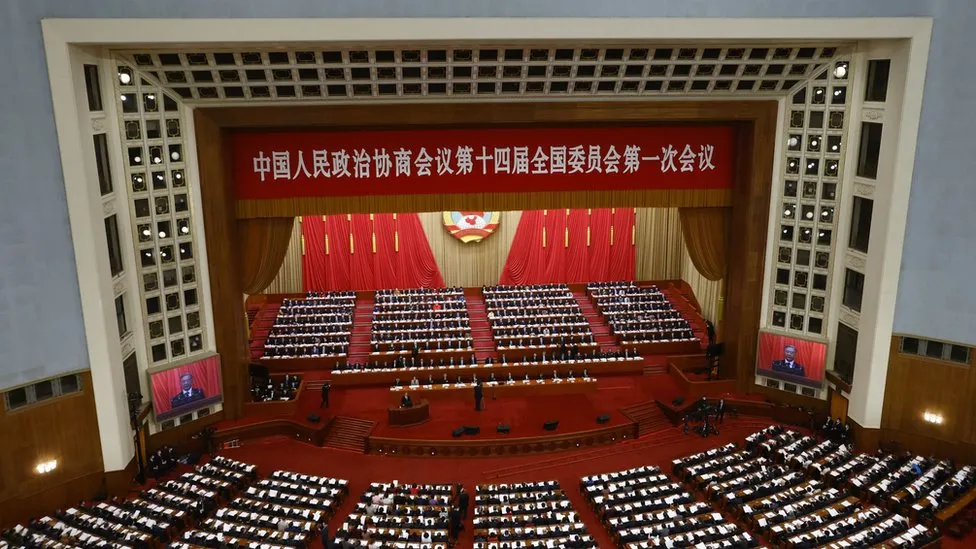Rubberstamp Economy: China’s Parliament and Growth
1 min readCan a rubberstamp parliament help China's economy?
China's political system has long been criticized for having a rubberstamp parliament, where the National People's...

Can a rubberstamp parliament help China’s economy?
China’s political system has long been criticized for having a rubberstamp parliament, where the National People’s Congress (NPC) essentially approves decisions made by the ruling Communist Party without much debate or opposition. This lack of genuine oversight has raised concerns about the effectiveness of governance in China and its impact on the country’s economy.
Proponents of the rubberstamp parliament argue that it provides stability and efficiency in decision-making, allowing for quick implementation of policies that can drive economic growth. They believe that without the constraints of a more robust parliamentary system, the Chinese government is better equipped to push through necessary reforms and investments that can boost the economy.
However, critics point out that the lack of meaningful debate and scrutiny in the NPC undermines accountability and transparency in governance. This can lead to misguided policies, corruption, and a misallocation of resources that ultimately harm the economy. Without checks and balances, there is also a risk of unchecked power and authoritarianism, which can stifle innovation and entrepreneurship.
In conclusion, while a rubberstamp parliament may expedite decision-making in the short term, its long-term effects on China’s economy remain uncertain. It is essential for the Chinese government to strike a balance between efficiency and accountability to ensure sustainable growth and development.






